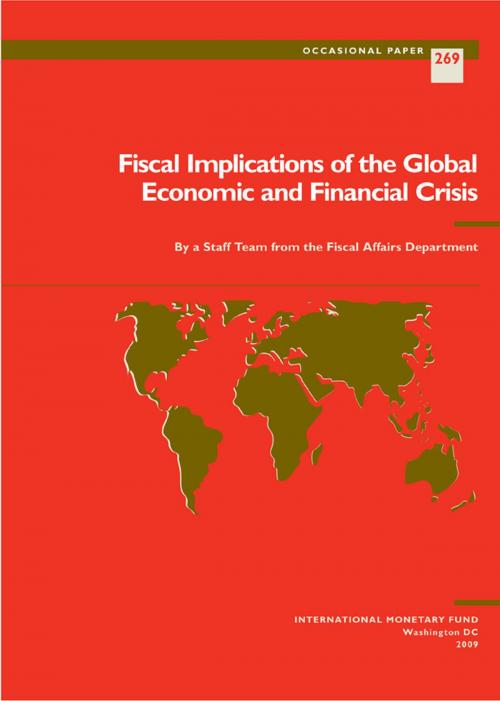Fiscal Implications of the Global Economic and Financial Crisis
Business & Finance, Economics, Public Finance, Finance & Investing, Banks & Banking, Macroeconomics| Author: | International Monetary Fund | ISBN: | 9781452765464 |
| Publisher: | INTERNATIONAL MONETARY FUND | Publication: | September 18, 2009 |
| Imprint: | INTERNATIONAL MONETARY FUND | Language: | English |
| Author: | International Monetary Fund |
| ISBN: | 9781452765464 |
| Publisher: | INTERNATIONAL MONETARY FUND |
| Publication: | September 18, 2009 |
| Imprint: | INTERNATIONAL MONETARY FUND |
| Language: | English |
The economic and financial crisis is affecting the fiscal accounts of virtually every country. Public sector support for the financial system, fiscal stimulus and the automatic stabilizers, as well as the revenue decline from the downturn in commodity and asset prices, are leading to sharp increases in deficits and debt stocks around the world. Expansionary fiscal policy continues to be necessary in the short term to stimulate economic recovery. But it is now essential that governments reassess the state of their public finances in light of the global crisis and adopt strategies that will ensure medium- and long-term fiscal sustainability. Many of the advanced economies most affected by the crisis are also those where age-related spending will increase markedly in the coming years, adding particular urgency to the need to identify medium-term consolidation strategies. This new paper, which focuses mainly on advanced and emerging market economies, employs projections based on the April 2009 World Economic Outlook to quantify the fiscal implications of the crisis for a cross-section of countries. The authors assess the post-shock fiscal balances and debt outlook, and suggest ways for governments to clarify their strategies for maintaining fiscal solvency.
The economic and financial crisis is affecting the fiscal accounts of virtually every country. Public sector support for the financial system, fiscal stimulus and the automatic stabilizers, as well as the revenue decline from the downturn in commodity and asset prices, are leading to sharp increases in deficits and debt stocks around the world. Expansionary fiscal policy continues to be necessary in the short term to stimulate economic recovery. But it is now essential that governments reassess the state of their public finances in light of the global crisis and adopt strategies that will ensure medium- and long-term fiscal sustainability. Many of the advanced economies most affected by the crisis are also those where age-related spending will increase markedly in the coming years, adding particular urgency to the need to identify medium-term consolidation strategies. This new paper, which focuses mainly on advanced and emerging market economies, employs projections based on the April 2009 World Economic Outlook to quantify the fiscal implications of the crisis for a cross-section of countries. The authors assess the post-shock fiscal balances and debt outlook, and suggest ways for governments to clarify their strategies for maintaining fiscal solvency.















